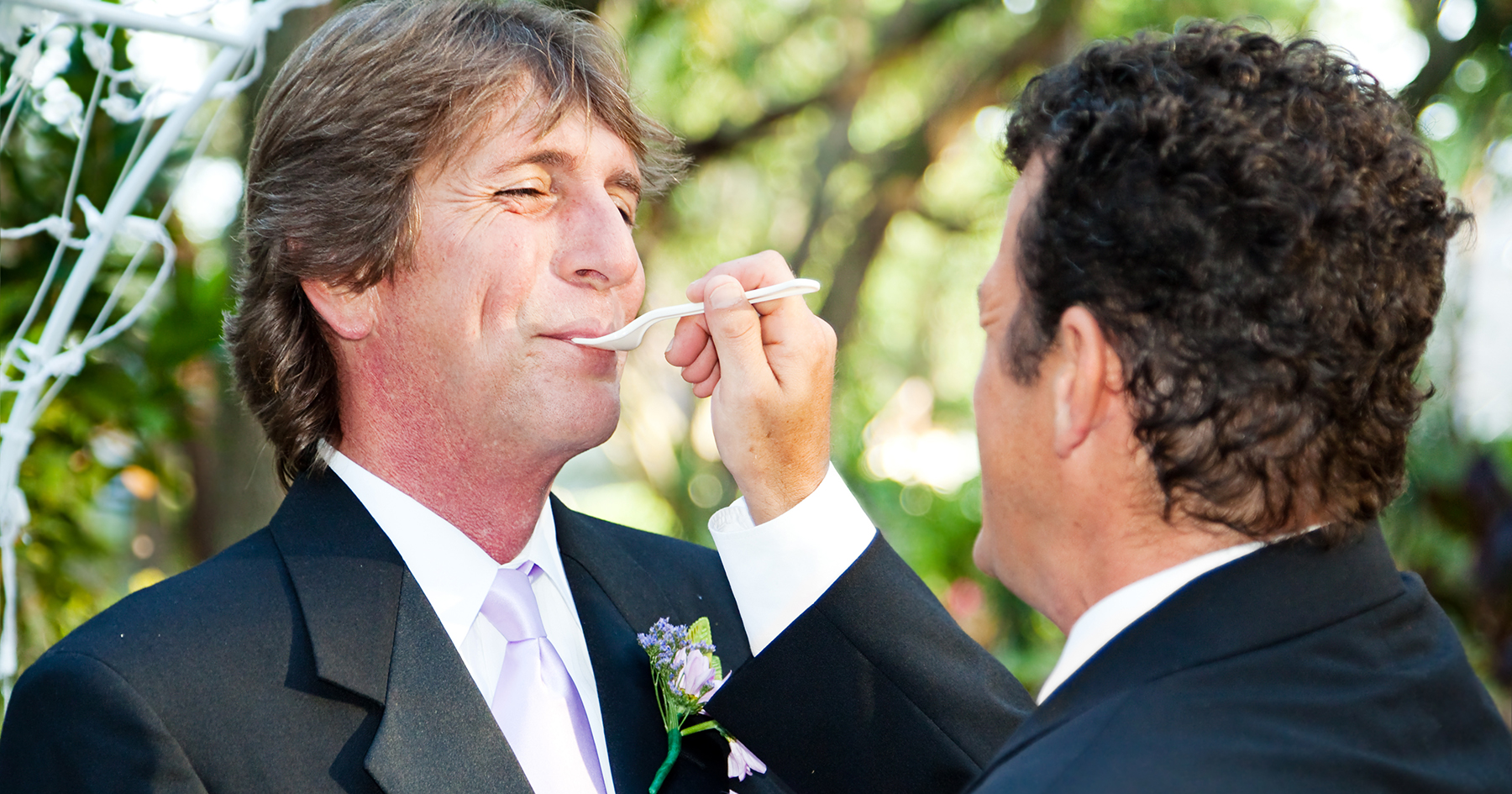Why Do Men Use The Word "Fag?"

By:
Why do so many young men use the word "fag?"
Professor C.J. Pascoe of the University of Oregon has studied this question and wrote a book about it called "Dude, You're a Fag: Masculinity and Sexuality in High School." We spoke to Pascoe about the true meaning behind homophobic slurs, why young men commonly use them, and whether they lead to violence.
ALSO: Here's Why Straight Men Have Sex With Each Other and How They Justify It
This interview has been lightly edited for length and clarity.
ATTN: What is the origin of the word "fag," and was it always used as a slur?
Professor Pascoe: That’s a good question, and honestly, it’s not totally clear. It seems that the general consensus is that it is a British term that was imported to the United States in the early 20th century. From what I can tell, it has been used to refer to sticks, to cigarettes, perhaps women as well, and to gay men. I’m waiting on a linguist to do the history on it — I haven’t seen it yet.
 University of Oregon - uoregon.edu
University of Oregon - uoregon.edu
Your research specifically asserts that the word "fag" is used to "police the boundaries of masculinity." Can you elaborate on this?
Contemporary masculinity in the West is characterized by two processes – repudiation and confirmation. That is, masculinity is not a given just because one is a boy. One has to constantly prove that one is masculine. Young men tell me that to be masculine is to be competent, dominant, heterosexual, powerful, and unemotional. However, proving those things on a daily basis is hard to do! So, they engage in a repudiation process, something I came to call a “fag discourse,” and a confirmation process, something I came to call “compulsive heterosexuality” to attain a sense of masculinity.

Young men have to demonstrate that they are not unmasculine or, in their parlance, a “fag.” For these young men, fags are not necessarily gay men, they are men who are weak and unmanly. So when a young man does anything that is unmasculine, they risk being labeled with that epithet, which young men repeatedly tell me is the worst thing a guy can be called. One boy said that it is “the lowest thing you can call someone. Because that’s like saying you’re nothing.” Another told me that boys were constantly threatened by the term as they could be called a fag for “anything…literally, anything. Like you were trying to turn a wrench the wrong way, ‘Dude, you’re a fag.’ Even if a piece of meat drops out of your sandwich, ‘You fag!’”
Of course, it felt like anything could get a guy called that, but what I saw in my research was that a boy was called a fag when he broke the local rules (these expectations can vary by class, race, and region, for instance) of masculinity – he cared to much about his clothing, he danced, he was too emotional, too touchy, or was incompetent in some way. This was especially true for young white men. The African American boys in my research were less likely to use homophobic epithets in this way (but were punished more harshly by the school for doing so). What boys where really saying to other boys when they called them a fag was “you are not a man.” In that way the “fag” was a very mobile epithet – it could be deployed by anyone, or received by anyone at any time. This set up a very complicated and tense daily ordeal in which young men strove to escape the epithet while being constantly vulnerable to it.
The other process young men engage in to signal their masculinity is something I came to call “compulsive heterosexuality.” That is, young men must demonstrate to others that they are indeed heterosexual. Now they do that not just through saying, “Yes, I’m attracted to girls” but by showing others that they are dominant over girls' bodies — they talk about girls as sex objects, tell larger than life and quite gross stories about having sex with girls (that involve pooping, farting, and bleeding), and physically flirt with girls in ways that demonstrate how much more physically powerful they are than girls (pinning them to the ground while girls squeal “playfully” to be released for instance).
Do women commonly use the word "fag" as well, or is it mostly used among young men?

In my research, I have rarely seen women using the word "fag." Now that I’m doing research (with Sarah Diefendorf of University of Washington) on the use of the epithet “no homo” on Twitter, we do see young women using the term, but still much less frequently than young men do. This speaks to how important "fag" is to contemporary understandings of masculinity — other research shows that femininity is governed by a slut discourse, rather than what I call a fag discourse. Historically, we have chalked this difference up to men being more homophobic than women. While research still bears out this difference, gender differences in anti-gay attitudes are less divergent than they have been historically — men’s changing perspectives, for instance, have accounted for much of the change in opinion regarding same-sex marriage.
What my research shows is that something more complicated is going on — it’s not just that boys are more homophobic than girls, but that this sort of homophobia is a “gendered homophobia” in which young men are teaching each other lessons in masculinity. So “fag” becomes a terrorizing shorthand for “what you are doing is not manly” not necessarily “I don’t like gay people.”
In one interview, you stated (in the context of high school), "it's much worse to be an unmasculine man than it is to be a masculine man who is desired by another man." Why is this? In other words, are feminine straight guys less accepted than masculine-acting gay guys?
For the young men I speak with, it is worse to be a feminine straight guy than a masculine gay guy. Though perhaps worst of all is a feminine gay guy. I chalk this up to the successes of a particular “we are just like you” strategy of the mainstream gay rights movement. The message young men have internalized is that a man, in the words of one of my respondents, “can still throw a football around and be gay.” In other words, just because a man is gay, it doesn’t mean he is unmasculine, which of course is true. It’s almost as if in their eyes, gay men can make up for the stigma of being gay by being acceptably masculine. So, when these young men use “fag” as an epithet, they refer usually to unmasculine men, gay or straight.
This is why I call their behavior a “gendered” homophobia rather than simply homophobia. These young men told me quite clearly that they were not talking only about gay men when they deployed homophobic epithets. As one boy I interviewed about his use of the word "fag" said, “I actually say (it) quite a lot, except for when I’m in the company of an actual homosexual person.” Another said, “Fag, seriously, it has nothing to do with sexual preference at all.” Indeed, these understandings were not limited to the young men I studied. A study out of Canada a few years ago indicated that when young men use homophobic epithets that they don’t actually mean someone is gay.
This is a complicated argument to make — that homophobic epithets are about policing masculinity, and they may also be about putting down gay men, or perhaps one and not the other. It’s complicated. What I would do is caution folks against assuming that when someone uses the word “fag,” it means that they don’t like gay men — it might and it might not. But I would also caution folks about accepting claims like the following: “oh I’m not homophobic so I can use this word in fun.” Because often what that person is doing is putting down femininity (especially male femininity), what some scholars call “effemiphobia.”
You have also stated that "90 percent of school shooters who go on rampage shootings have been subject to homophobic harassment and teasing." Do you think homophobic bullying increases the likelihood of violent retaliation to disprove claims of femininity?
This specific statistic is not my work – researchers Michael Kimmel and Matthew Mahler pointed this out in their piece called Adolescent, Masculinity, Homophobia and Violence: Random School Shootings 1982-2001. Other scholars are following up on this work to update it to take into account recent school shootings. The phenomenon that this sort of violent retaliation in response to accusations of femininity illustrates is something that scholars call “masculinity threat.” That is, when young men have their masculinity threatened by others, they attempt to reclaim that masculinity through some sort of dominance-signaling behavior. Scholars Christin Munsch and Robb Willer, for instance, have documented that when young men are told that they are “less masculine” than others, they are more likely to espouse pro-rape sentiments. Others have pointed out that when men’s masculinity was threatened in an experimental situation, they were more supportive of the Iraq War, expressed more sexual prejudice toward gay men, and were even more likely to say they wanted to buy an SUV! We can understand use of homophobic epithets toward straight, young men as a form of “masculinity threat” to which these young men may respond by asserting other facets of masculinity, including in the most dire scenarios, widescale violence.
I want to emphasize the relationship between young men’s responses to masculinity threat and our current discussions of homophobia. We often discuss homophobic epithets as if they are solely a matter of diversity, or that they are solely directed at GLBTQ young people. What this body of research shows is that homophobic epithets are a primary way in which contemporary masculinity is forged. As such, yes, we need to address homophobia directed at gays and lesbians, but equally important we need to call attention to the role it plays in shaping really damaging and dangerous notions of masculinity for straight young men. As we have seen, shoring up ones masculinity when it is threatened can have devastating consequences.
In a country with freedom of speech, how can we better police the word "fag?" What are the solutions to this problem?
Well, I’m not sure I would use the word “policing.” That is, I’m not sure I want to get into the business of saying, “yes, you can say this” or “no, you can’t say that” in deeming one word good or one word bad. What I would emphasize would be context and meaning. That is, in the right context any word can be an epithet. For instance, my children have decided that the word “cute” is an insult. I have no idea why, but to them it means something bad. So I’m not as concerned with particular words as I am with what we mean when we say them.
When I talk to school administrators and teachers about gender inequality and homophobia in schools, for instance, I don’t encourage them to make certain language off limits. Instead I encourage dialogue, which I acknowledge is more complicated, time-consuming, and difficult than making a word off limits. When someone uses a word like “fag” as an epithet, instead of shaming them by saying “You’re homophobic!” I would encourage those who work with young people to ask “what do you mean by that?” A young man might respond with something like “He’s acting like a girl/That’s a stupid thing to do/I was just kidding/That’s weird/Guys don’t do that.” In the best case scenario, this sort of question can open up a dialogue about what it means to be masculine. It gives the person who used the word a chance to explain what he (and it’s usually a he) meant by it, and the teacher/administrator/one at whom the word was directed a chance to talk about these meanings, hopefully opening up a discussion about what it means to be a man and why one might feel the need to put down another young man as well as a chance to discuss more fruitful ways to share thoughts and feelings. This is much more productive than say, giving a kid detention and labeling him a homophobe (not to mention the fact that those sorts of punishment practices are disproportionately targeted at youth of color).
Of course, one of the difficulties in grappling with gendered homophobia among boys is that often boys deploy these epithets in joking interactions with friends. They imitate unmasculine men for laughs or hurl the epithet in a humorous way at a friend. The “know how I know you’re gay” scene between Paul Rudd and Seth Rogan in the film "The 40-Year-Old Virgin" is a great example of this. It’s a hysterically funny scene, which is also all about producing particular cultural definitions of masculinity — something that involves heterosexuality but also, apparently listening to the right music (not Gloria Estefan), making the right food (not spinach dip in a sourdough bowl), and engaging in the right hobbies (not listening to public radio).
Something we have to remember is the sort of “gender policing’ that happens through the deployment of homophobic epithets doesn’t just happen when one high-status boy goes after a lesser, weaker, less popular boy, but it happens in relationships of equals, often through humorous interactions. That makes it more difficult to recognize and call out. And those who do call it out are labeled as “humorless” or “angry.” I would encourage us to develop forms of humor and bonding that perhaps don’t rely on putting down others, threatening their gender identity, or reinforce toxic social norms.
